… in Armenian. Thank you for letting us travel to the beautiful country of Armenia. ‘Schnorrhakalutsjun’ (Thank you) is the only word we have learned in Armenian. When we used it, it always put a smile on the recipient’s face, and a ‘you’re welcome’ out of his mouth, which we did not understand anymore. Armenia is casual. And more than once after that we find that is really a fitting description for this country and its people. It does not need a lot of rules, no proscriptions, the etiquette manual on how to behave. It just works without all that. After almost two weeks, we are both quite wistful to leave this country now.
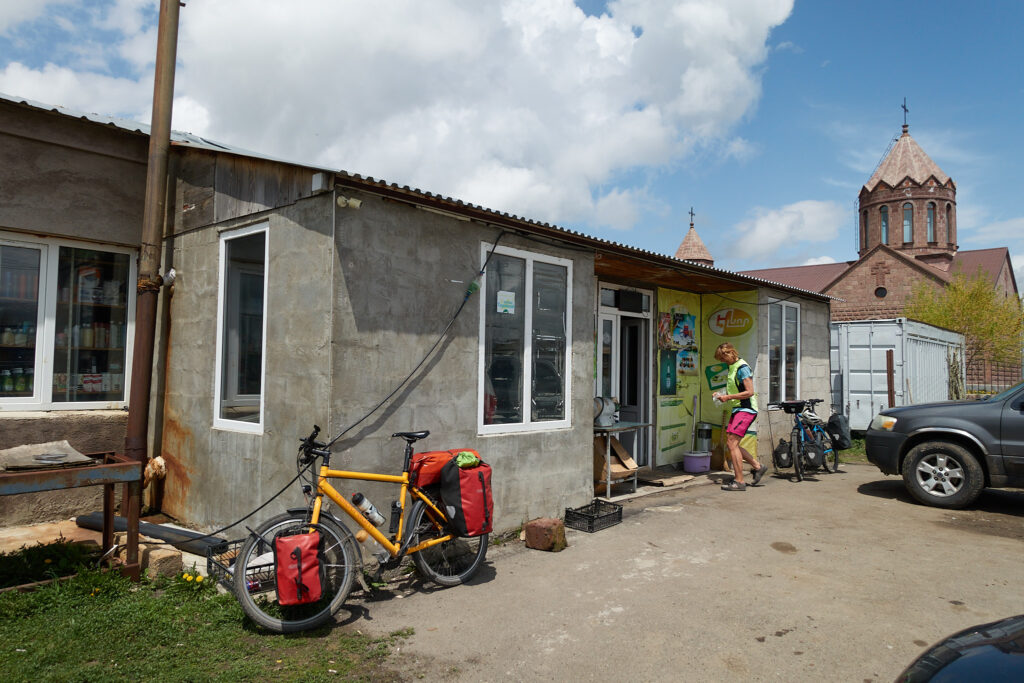

But first the finale of our Armenia trip: Wild camping at Lake Arpi at an altitude of 2025m. In indescribably beautiful, untouched nature, the vastness and solitude and all this in high alpine and blooming spring.

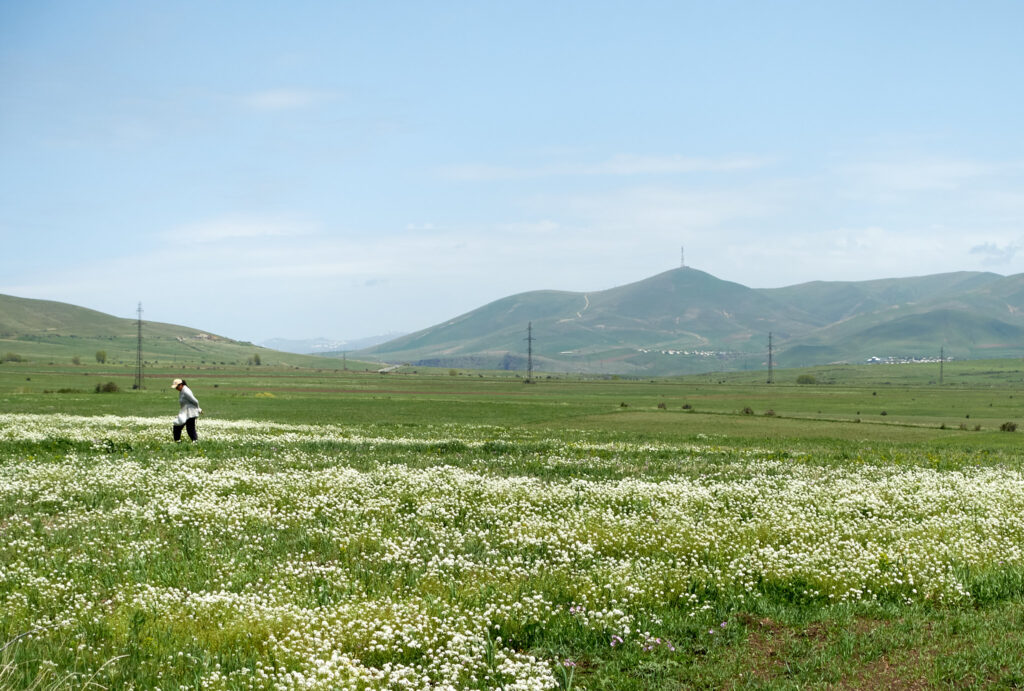

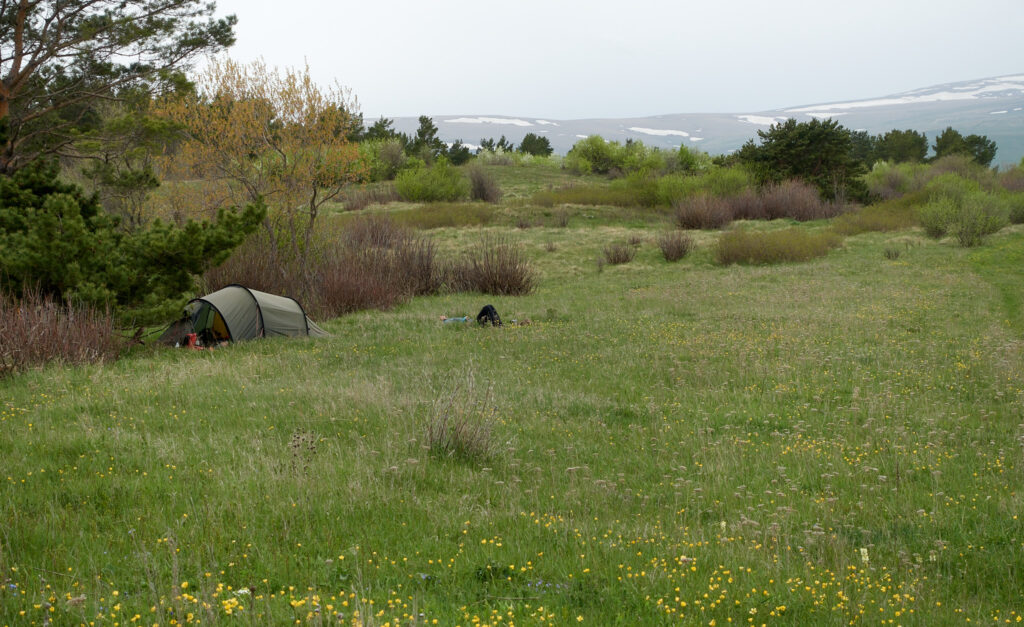
We meet Ilias from Algeria. He is also casual, is a traveler, just came from Quatar, flies in four days to Srilanka or is still rebooking, and finds Asia super beautiful. Before that, he walks a bit along the lake.
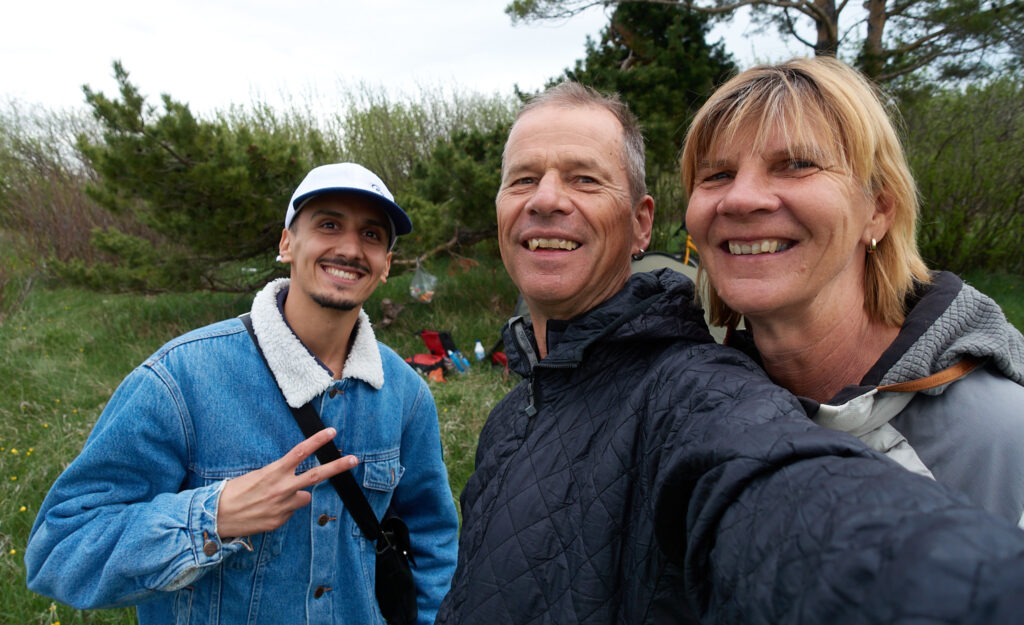

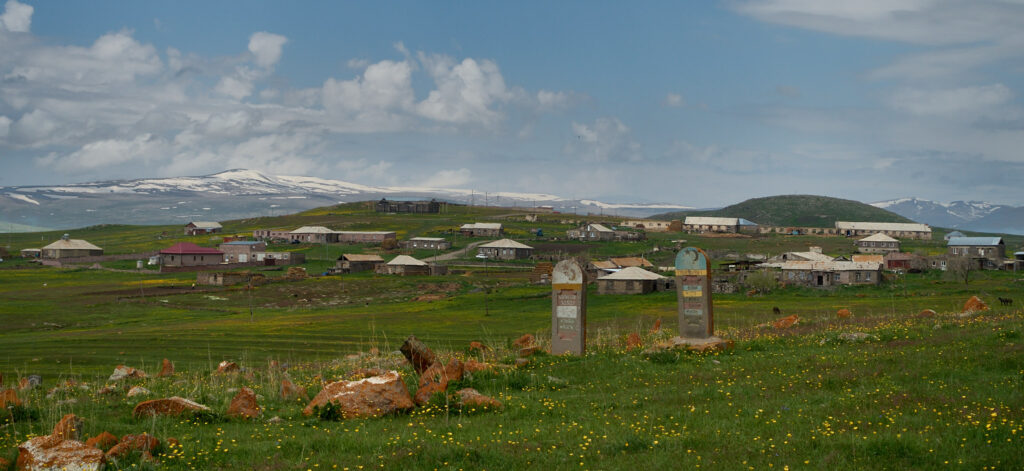
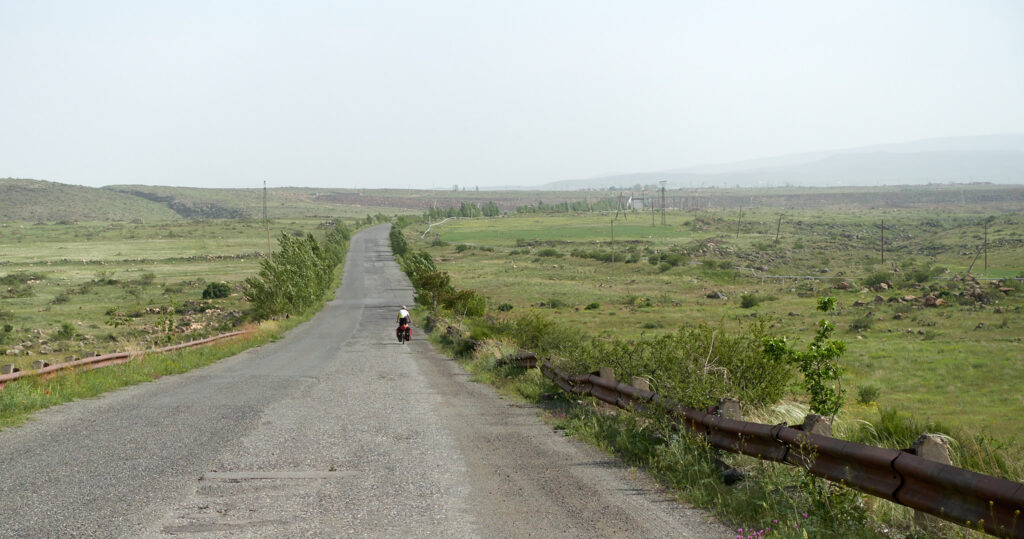
We come from Gyumri, the second largest city in Armenia following Yerevan, with 172,000 inhabitants. Very lively and livable … and a chain carousel from Soviet times with a lot of speed.
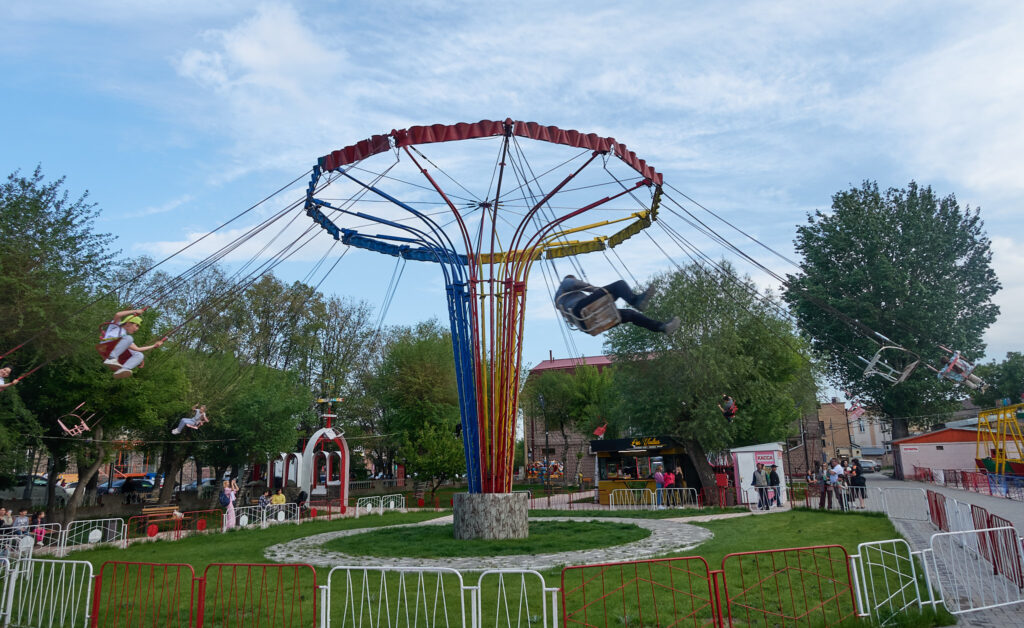


Armenia’s customs, ecopoints and more.
No consumption creates no garbage. So there really is little waste. Glasses and plastic bottles are used over and over again for a wide variety of liquids: Wine, vodka, milk, motor oil, etc. Often you can even buy them in supermarkets. Glasses for honey also had a different purpose before, which you can see from the labels that are still there, reused.

Eggs are available unpackaged. Noodles, lentils, beans, etc. as well.
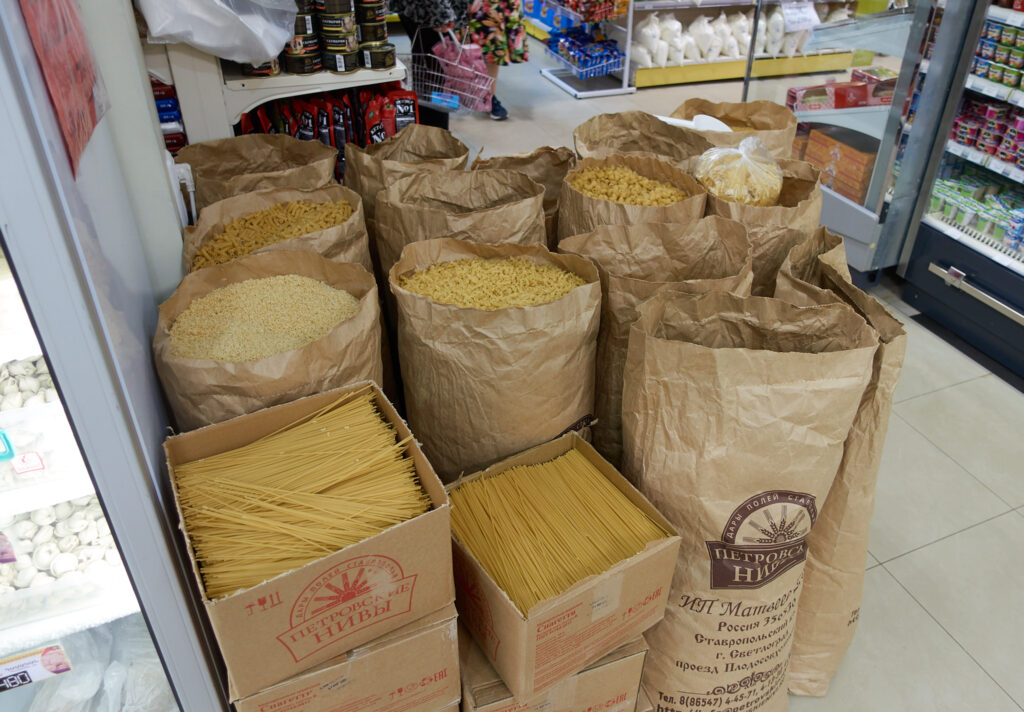
Even the plastic bags you put on your head quite unpretentiously quickly in the rain to protect your hairstyle.
Instead of vacuum cleaners, leaf blowers or even Kärcher, here there is only the one meter long (witch) broom with a few boxwood branches tied to the bottom. The motto is that you do not cause any dirt in the first place. You always take your shoes off when you enter a house. In every inn, that is the way it is. Pedestrian crossings are rarely. Underpasses are not cyclist or wheelchair friendly. For this, a nice young man helps unasked and drags the heavy travel bike down the steps and up again.
Armenia is proud of its alphabet and the language that goes with it. The Museum of Ancient Writings in Yerevan is among the top ten places of interest. If there are translations then first in Cyrillic alphabet and Russian language. Very impressive what is still there after forty years of Astrid’s school Russian, vocabulary, conjugations, numbers, today and tomorrow. We even manage to learn something from the people and tell them about us. It is wonderful to see how communication in local language opens people’s hearts and brings a smile to their faces.

Lawash, the bread of the Armenians, rags up to a meter in size that you can buy in packs of fifty pieces. You wrap anything edible in it and eat it, like shawarma. Poppy seed rolls are Rolf’s history. He does not even remember how they look like, and fresh bread and rolls are a fluke here and never available before 9 a.m.
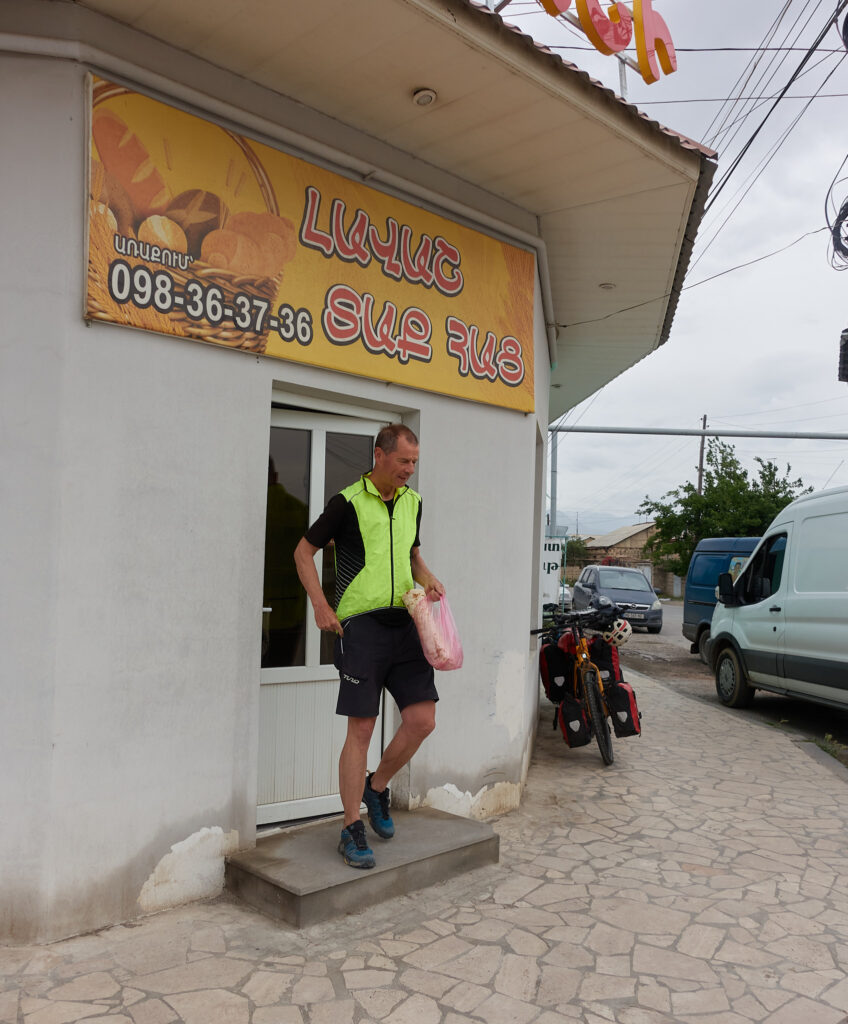
Armenia was once known for its coffee tradition. However, progress has arrived here as well. There are no coffee bars – but vending machines in each corner.
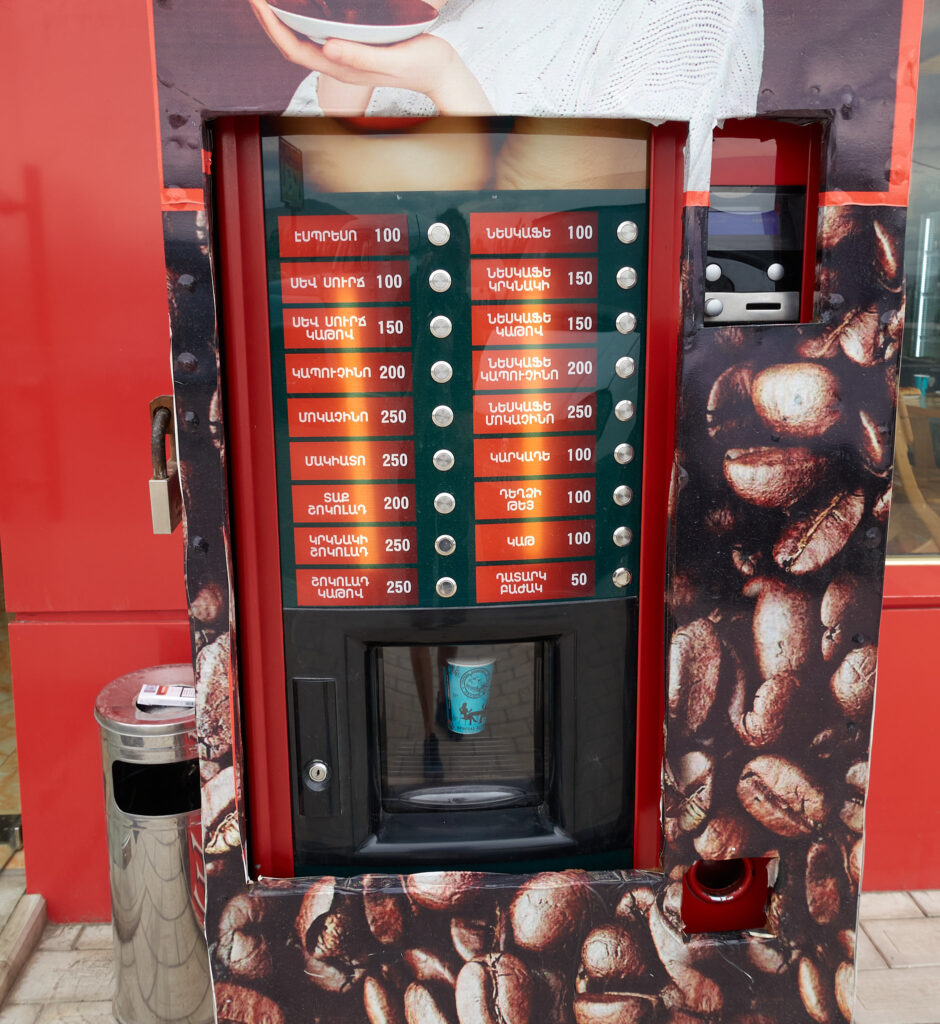
Cars are used until they really cannot be used anymore. A large number of them are from the former Soviet era, Lada, Wolga and Wartburg, which means they already have thirty five years on the hump. The car of our landlord, who kindly drives us to the ATM, cannot be locked anymore. The seat belt does not work. The passenger window is half open – impractical, because there was just a cloudburst – and cannot be moved, crank unscrewed. The seat is wet – I should sit further in. But the car is running. Even the windshield wipers move, albeit reluctantly. When shifting gears, the transmission sounds like a net full of marbles (this sentence is borrowed from a book by Arno Frank). It is better to let the engine run. You never know if the car will start again. One door is always open, either the driver’s door, the trunk door or the engine door. What always works is the horn with which we are greeted so often.
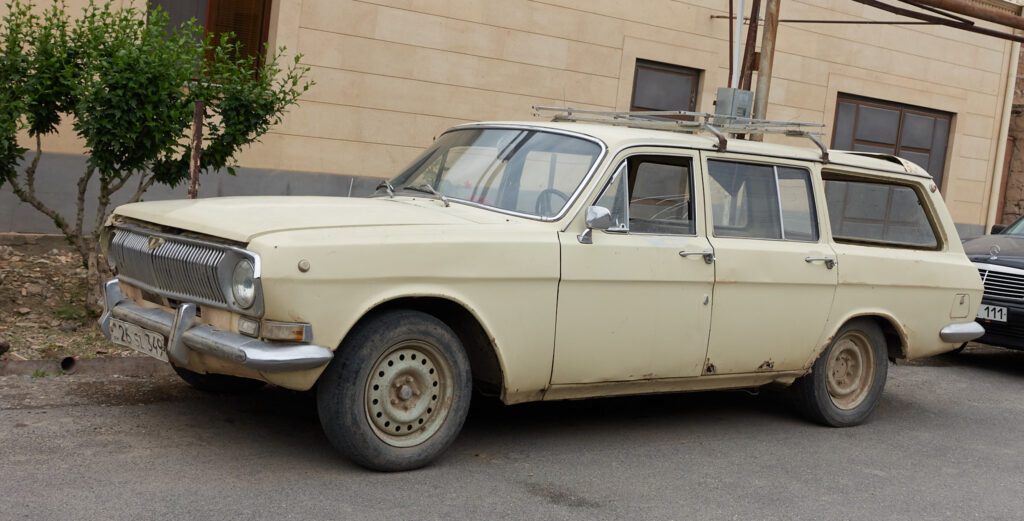

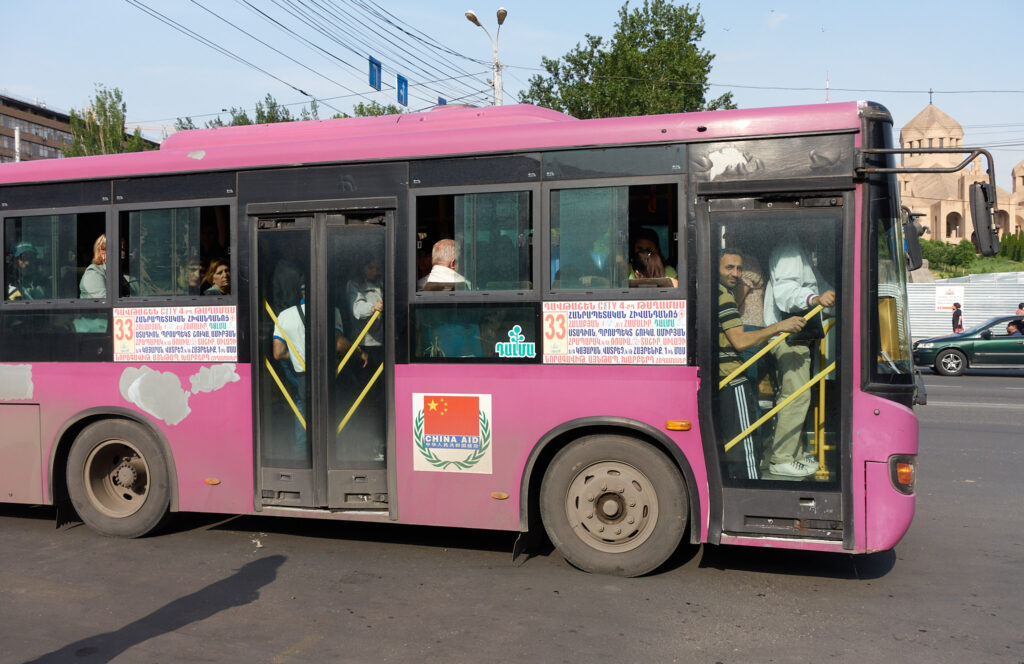
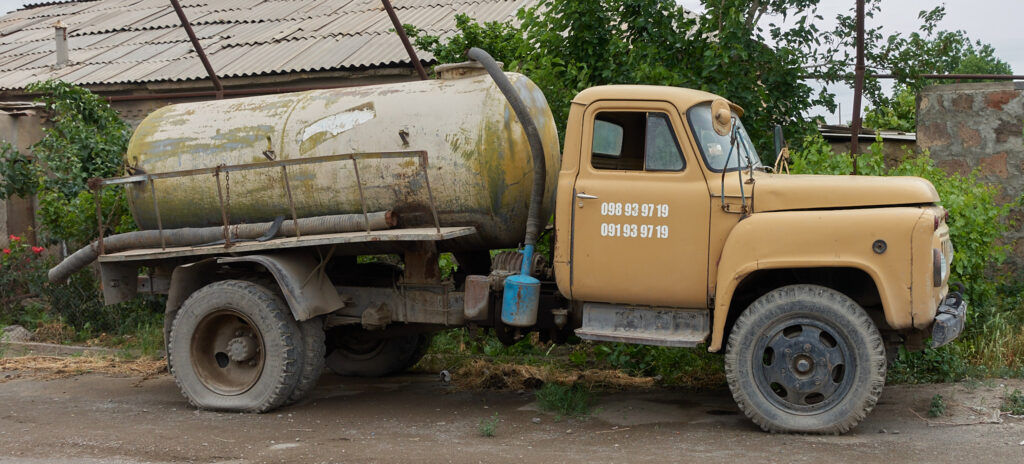
The flip side is that a great deal of effort goes into maintaining the cars. There is an incredible amount of garages, tire stores, oil salesmen, tow trucks and of course gas stations and car washes (for the cars that survive a wash). Every other car at the gas station has the hood up – something is being checked, refilled or tightened.
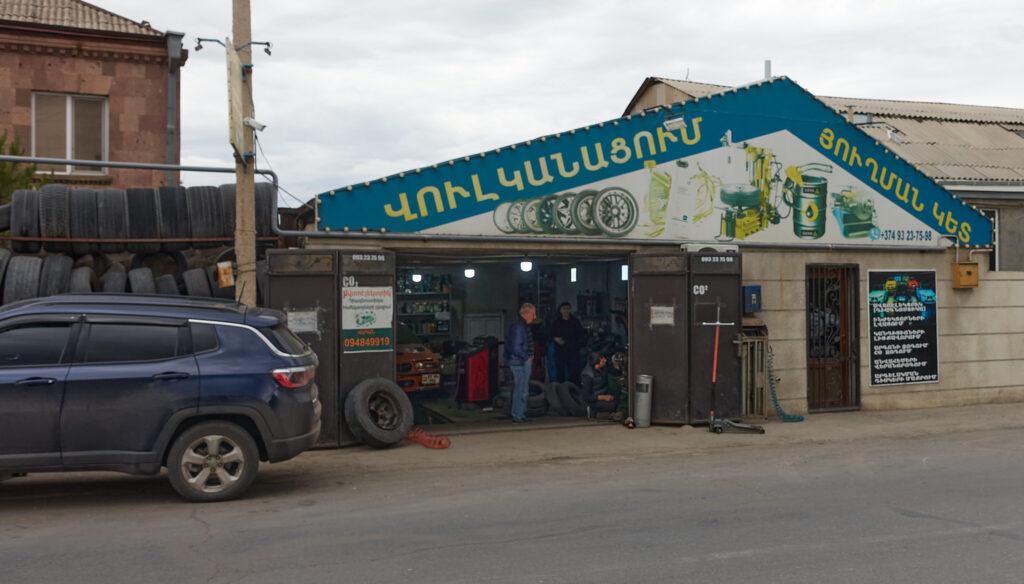


Hip vintage cars, cars that run and can still be repaired, are not an option for us right now. We are happy on our travel bikes, free of birds, independent, easily come into contact with the country and its people. People wave, honk, smile at us, and once we were also blessed. Somehow we are aliens 🙂
… and felt very welcome here. Thank you !
